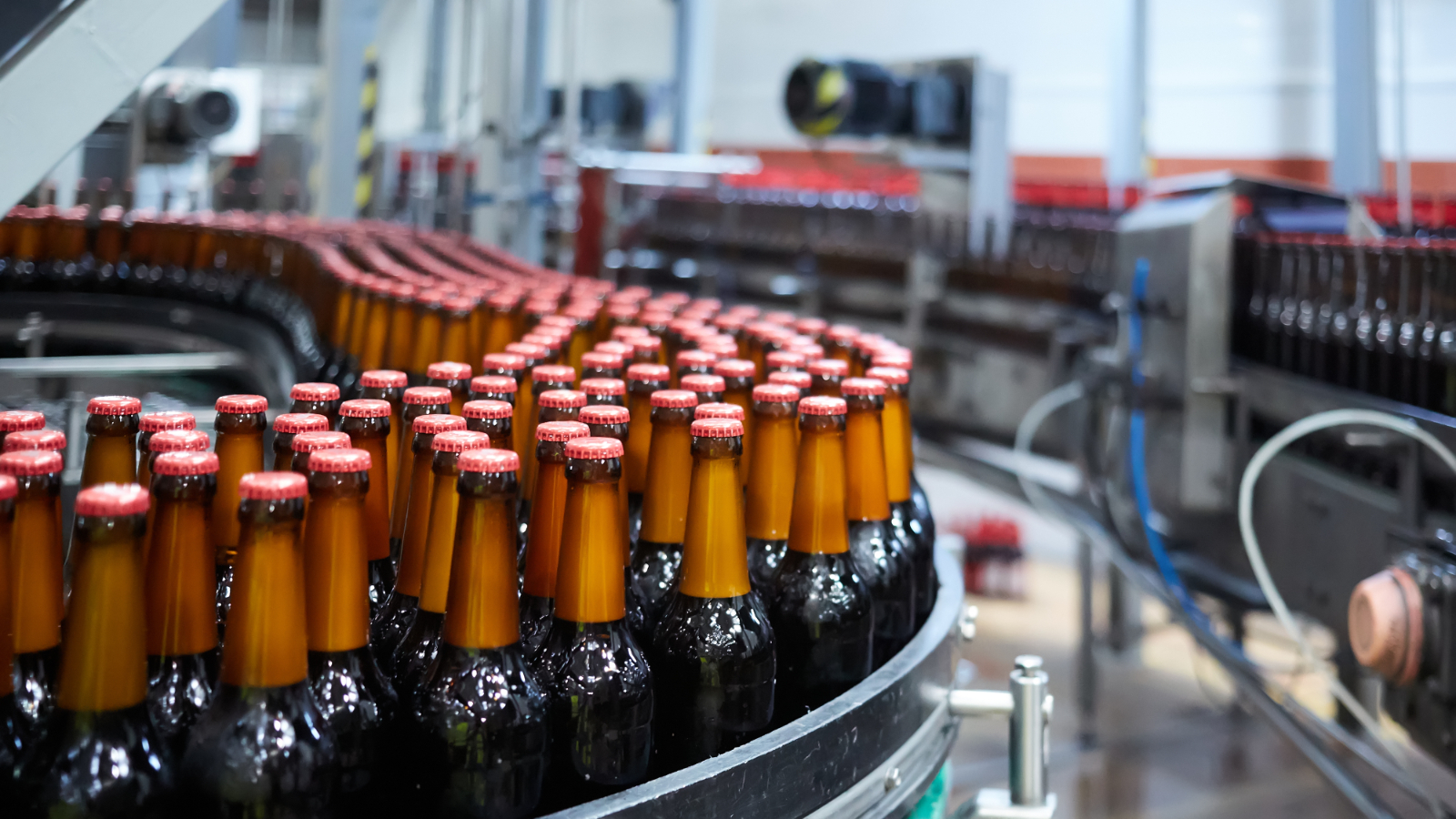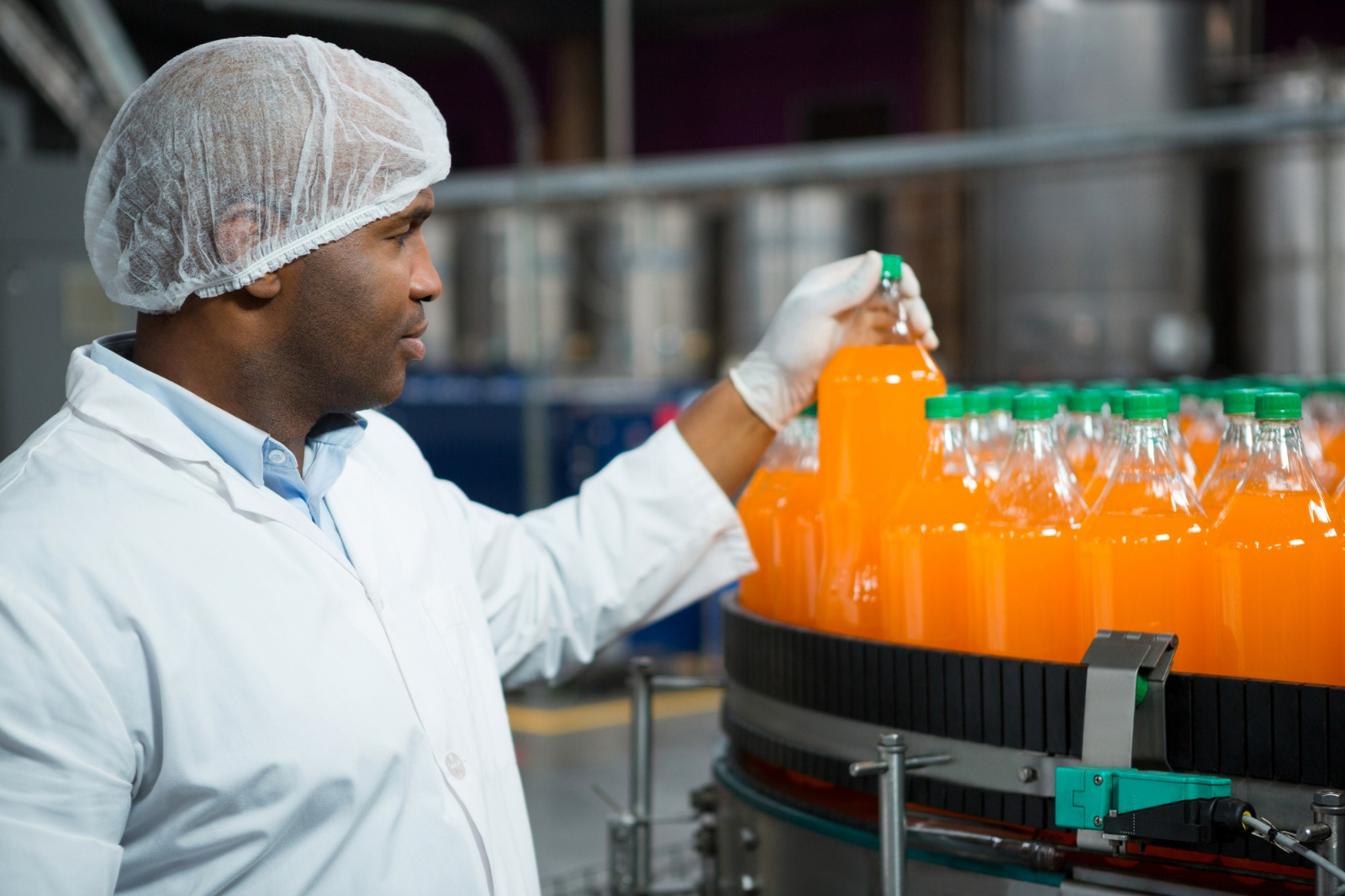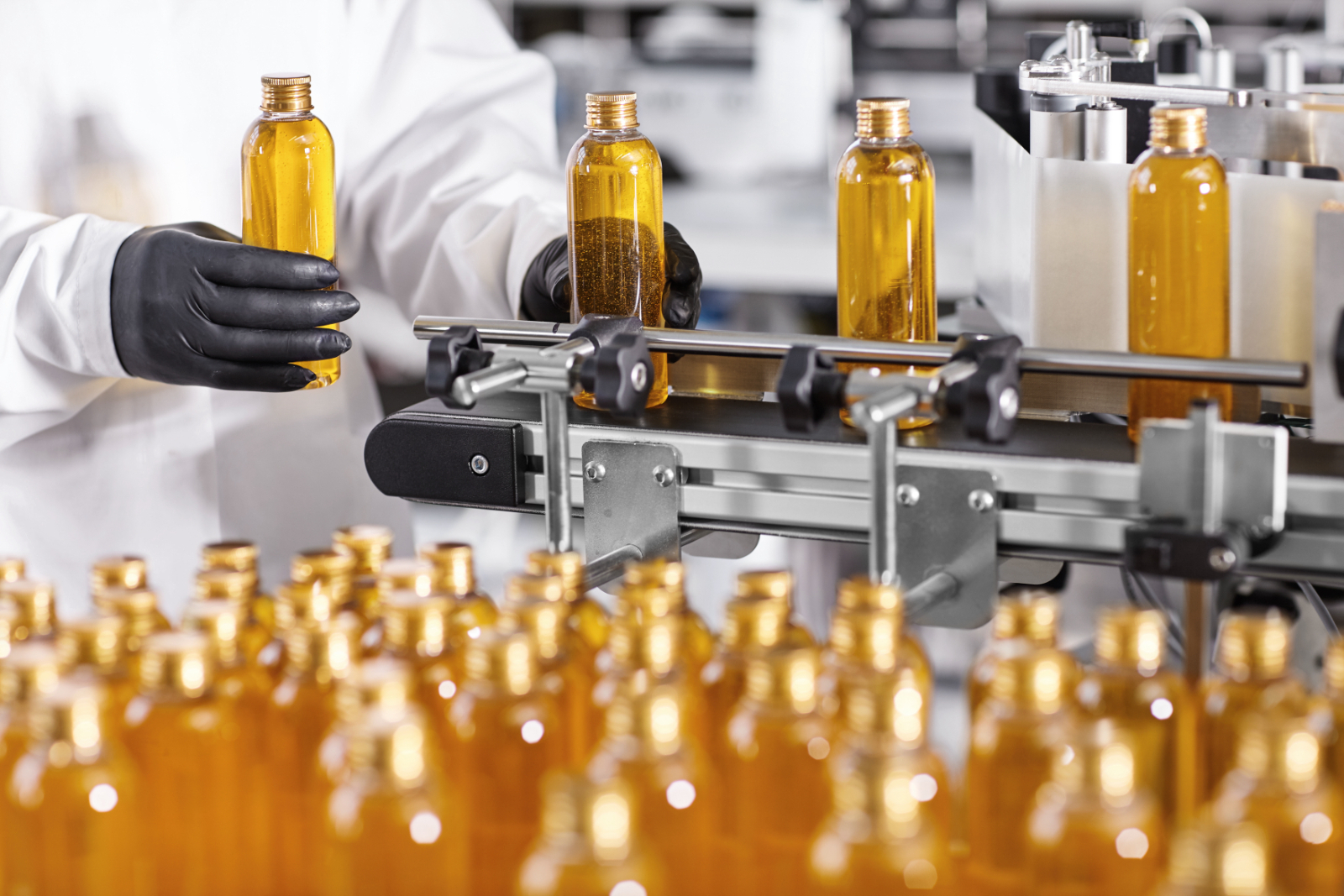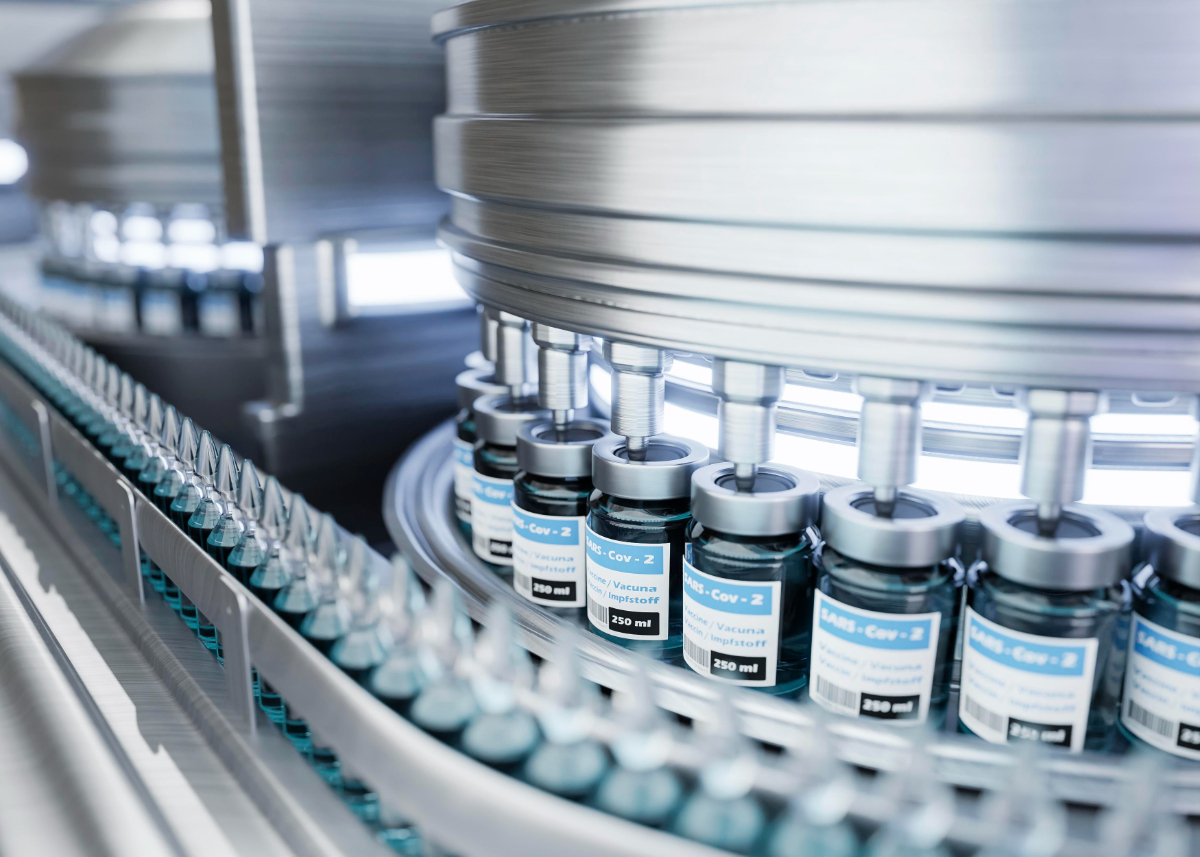Whether you're new to the industry or looking to upgrade your current equipment, explore key insights into the types, functionalities, and applications of capping machines.
What is a Capping Machine?
In any industry, time and efficiency are key factors, and this couldn't be more true in the world of bottling. Manufactured product bottling is a task carried out in countless sectors, and this has prompted the need for capping machines to expedite the process.
A capping machine is an essential component of the packaging process in many industries. It is a device that applies caps to containers, such as bottles or jars, in a fraction of the time it would take for a human to do the same job. The purpose of capping machines is to securely seal containers, safeguarding the quality of the product inside and preventing leaks or spills.
The technology used by capping machines can be quite diverse. It can vary immensely based on the specific type or model of the machine. These machines take numerous different forms, having various shapes and sizes to suit specific needs. The applications they've been utilised for are countless.
For a tiny local business using a single machine or a large industry commanding a fleet of these machines in a complex production line, capping machines serve an integral part. They play a vitally crucial role in ensuring the day-to-day operations run flawlessly, contributing significantly to the success of the entire production process. The versatility of these machines explains their widespread use across different industries.
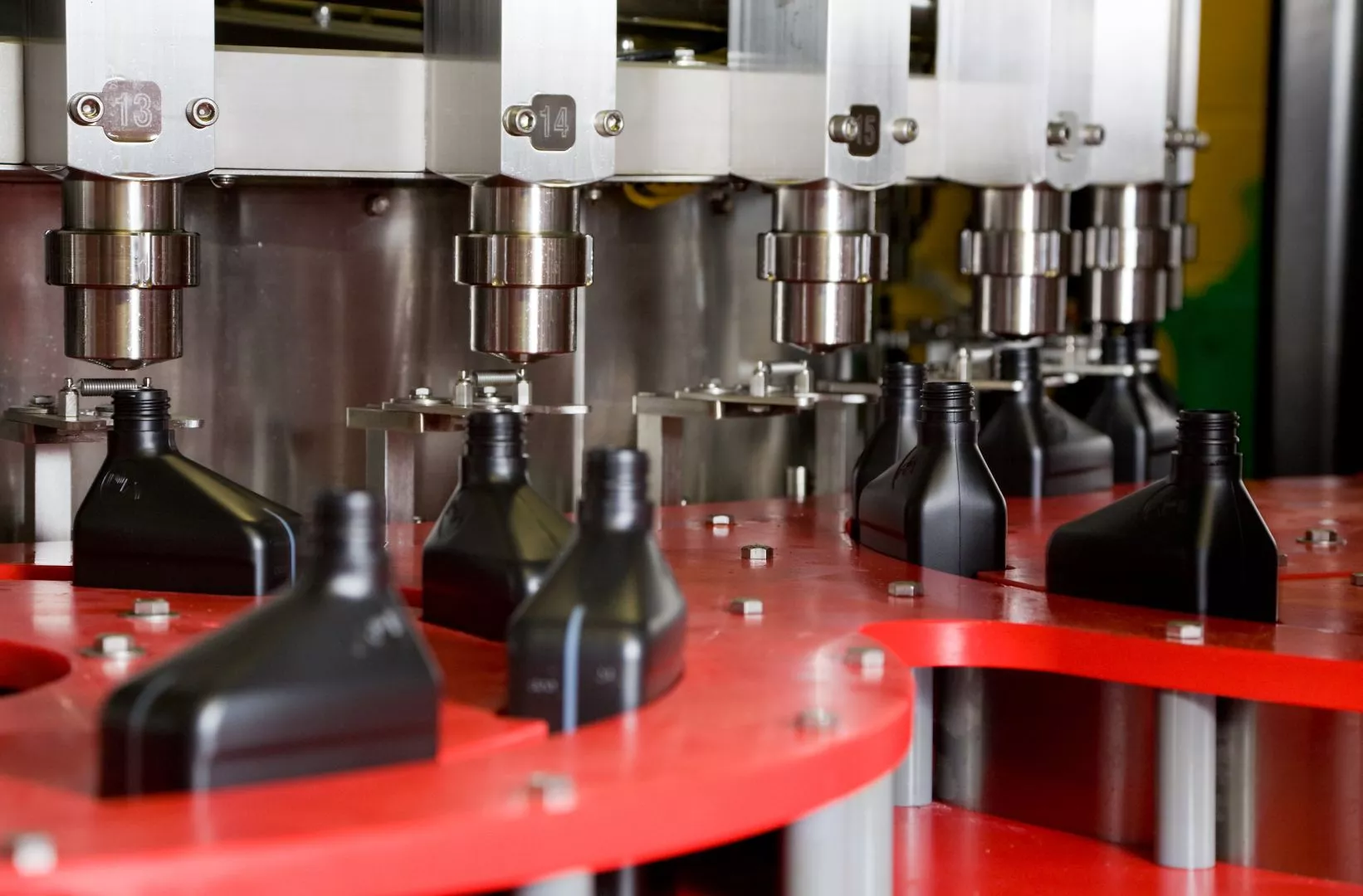
Types of Capping Machines
There are several kinds of capping machines offered for sale today, suitable for different industries depending on their specific needs. From automatic to semi-automatic, these machines are designed to securely fasten caps onto containers of all sizes and shapes.
Any business, whether it is in food, beverage, or pharmaceuticals, should carefully consider their unique requirements and select the most appropriate machine. There truly is a vast array of options available out there, and you may need more information to assist in making the perfect choice. One kind of machine used in packaging is the vertical pluggers.
Well-suited for containers needing a plug or stopper before a cap is applied, these machines are masterly designed for optimal efficiency. They provide a precise placement of plugs or stoppers, ensuring an impressive reduction in wastage.
These machines are time savers, ensuring swift and efficient operations. Beyond saving time, they maintain a consistent level of work output. Ultimately, vertical pluggers enhance the packaging process, which adds business value due to diminished wastage and increased consistency.
Next in our product line, we present Chuck Cappers, notably exceptional tools designed to effortlessly secure screw caps onto various sizes of containers. The effectiveness lies in their ability to hold both the cap and the container firm and unwavering during the capping process.
This unique stability ensures a meticulously sealed product every single time, therefore guaranteeing quality and safety to end users. As a vital part of any production line, they prove instrumental in maintaining the overall integrity of packed products. Their efficient, reliable operation reduces wastage and boosts productivity.
Spindle Cappers, the third type, function by harnessing a series of spinning discs. These discs apply and secure caps onto various containers. These pieces of equipment are highly lauded for their speed and consistent reliability. Industries across the globe, from food to medical, often employed these Spindle Cappers, trusting in their efficient and effective operation. The seamless blend of speed and reliability makes them a preferred choice.
Lastly, Snap Cappers emerge as an essential aid in the production line. They are meticulously engineered to apply snap-on caps to containers efficiently. With precision, they work seamlessly with a variety of containers requiring a cap to be firmly pressed onto them. By eliminating manual exertion, Snap Cappers ensure production efficiency. They provide consistent, high-quality capping without compromising on output speed. These machines make the packaging process quicker and more reliable.
How do bottle capping machines work?
Bottle capping machines are impressive pieces of technology that function on an impressively straightforward principle. At the beginning of the process, the containers which require capping are organised on a transport system, like a conveyor belt.
The role of this conveyor mechanism is to guide the containers into the correct position within the capping area of the machine. Once these containers are precisely aligned, the machine comes into action and the cap is securely placed onto the container.
The beauty of these machines is their customisability. They can be calibrated to fit specific requirements, such as needing screw-on caps, snap-on caps, or plug caps. This ensures the machine provides a seamless and adaptable solution for all your bottle capping needs. Furthermore, it increases productivity by consistently delivering high-quality, accurate capping on a large scale.
The Benefits Of Using Capping Machines
Capping machines are an invaluable tool for many industries. There are several key advantages to utilising these machines, the most prominent of which involves enhancing efficiency. Capping machines have revolutionised packaging processes.
They noticeably reduce the time required for capping tasks compared to laborious manual methods. This substantial time saving leads to improved efficiency and productivity. It ensures products are capped, ready, and dispatched quicker, meeting customer demand and potentially increasing overall business profits. The benefits of capping machines, therefore, go beyond just time saving - they can directly contribute to the growth and success of a business.
Additionally, the use of capping machines results in uniformity and improved quality in the sealing process. This leads to reduced wastage, contributing to greater cost-effectiveness in the long run. One of the key advantages of the technology incorporated within these apparatuses is that there's a much smaller requirement for direct human interaction.
This subsequently lessens the probability of mistakes potentially occurring in a procedure that is more manually-focused. It's also worth remembering that human involvement often involves more time and cost, adding to operational inefficiency.
Consequently, by investing in a capping machine, businesses may experience significant improvements in productivity, product quality, and overall cost-efficiency. This technology allows businesses to streamline their bottling processes, thereby saving both time and money. This investment could potentially transform a company's production line entirely, increasing the pace of operations and yielding a higher output of goods.
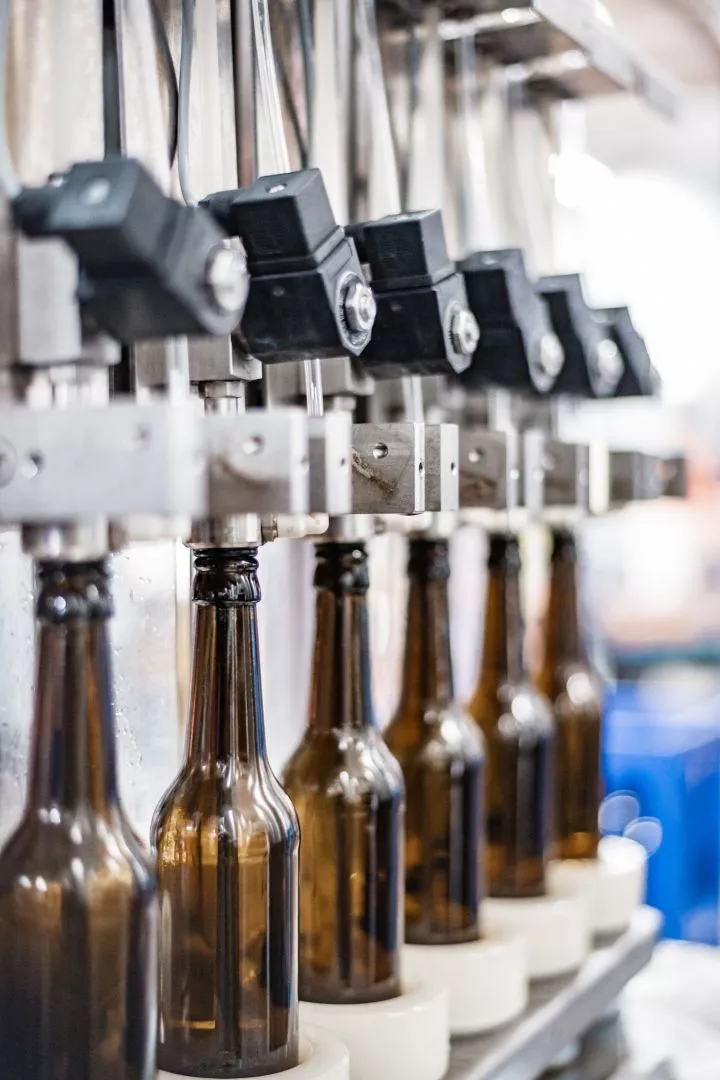
The main aspects of bottle-capping machinery
The functionality of bottle-capping machinery is indeed multi-faceted, encompassing several key elements. The first of these is the mechanical structure. This refers to the design and composition of the machinery, which is responsible for the operational mechanism and the functioning of the whole system.
The structure is the culmination of careful engineering and design, ensuring the machine is capable of efficiently performing the task at hand - bottle capping.
Secondly, another significant factor is the automation level.
This quantifies the machine's capacity to operate with minimal human input or intervention. High levels of automation are advantageous, enabling faster production speeds and improving accuracy. It also reduces labour costs, making for a more cost-effective operation.
Thirdly, there is the vital aspect of ease of maintenance. It is paramount for any machinery used in high-demand environments, like bottle-capping industry, to be easily maintainable. Regular part replacement and timely repairs are essential to preserve the machine's life span and keep it functioning optimally. A machine that is easy to maintain also translates into less downtime, therefore bolstering productivity.
Lastly, adaptability is a crucial characteristic to consider. It's about the machine's ability to keep up with future advancements in technology and adapt to changes in the industry.
It's vital that these machines can be updated or modified to align with evolving needs, thus ensuring their longevity and continued relevance. In conclusion, the functionality of bottle-capping machinery is multi-dimensional - comprising of mechanical structure, automation level, ease of maintenance and adaptability. These features significantly affect the efficiency and longevity of the machinery, making them imperative considerations for any business in the industry.
Are you looking for capping machines? Then call the experts at today. That’s not all, we undertake capping machine repair and sales. Get in touch with us if you have any queries.

